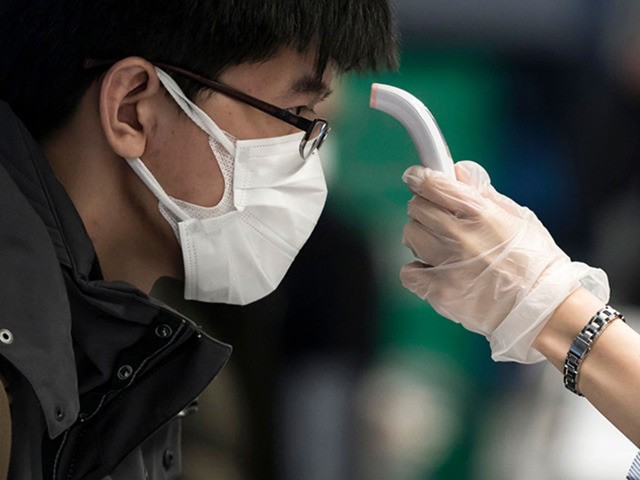An article published Thursday on the website of the government of Hubei, the Chinese province at the heart of the coronavirus outbreak, claimed the virus could theoretically damage male fertility. The article was removed without explanation a few hours later.
The South China Morning Post (SCMP) summarized the article:
Men who had contracted the disease and recovered from it should seek medical advice on whether it might have had a detrimental impact on their fertility, said the piece, which was produced by a team from the reproductive medicine centre at Tongji Hospital in Wuhan, the capital of Hubei.
While there was no evidence to suggest the infection could damage the male reproductive system, it was theoretically possible as the coronavirus was genetically similar to the one that caused Sars (severe acute respiratory syndrome), it said.
The infection could result in “impairment of immune homeostasis in the testes”, which could cause orchitis – an inflammation of the testicles – which in turn could reduce a man’s sperm count and possibly lead to infertility, it said.
Both Covid-19 and Sars invade cells by combining with an enzyme called Ace2, which exists in large amounts in the testicles, as well as in other organs like the kidneys and heart.
Men who had contracted the disease should seek medical advice “so that problems can be detected and treated as early as possible”, it said.
While Hubei officials declined to comment on the article, a Chinese doctor told the SCMP that fertility damage is theoretically possible and may have occurred in some people who contracted SARS in the early 2000s, but the sample size is too small to draw any firm conclusions.
Before the provincial government removed the article from its website, it was widely shared on social media and drew the attention of the Global Times, one of China’s state-run national media outlets.
The Global Times noted that the article was published by Tongji Medical College in Wuhan on March 10, republished by the Hubei government website on March 12, and then removed after it became a viral sensation. The Global Times summarized the contents of the article in a manner similar to the SCMP and noted it was speculative without disputing any of it.
Newsweek noted Chinese scientists expressing concerns about coronavirus damaging male fertility as far back as mid-February. Western doctors described the early Chinese papers as “highly theoretical” and “somewhat premature,” but added it was not unreasonable to discuss the possibility and organize research to determine whether the concerns were valid.

COMMENTS
Please let us know if you're having issues with commenting.